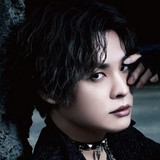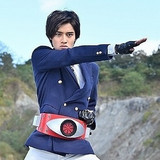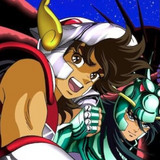#Exploring Music in BELLE with Ludvig Forssell (Interview)

“#Exploring Music in BELLE with Ludvig Forssell (Interview)”
BELLE is a modern take on The Beauty and the Beast with an emphasis on musical elements. The soundtracks are incredible and unique as the songs have both Japanese and English lyrics. We had the opportunity to talk to Ludvig Forssell, one of the composers involved with the soundtrack alongside lead composer and arranger Taisei Iwasaki (Blood Blockade Battlefront) and Yuta Bandoh.
How were you brought on to work on the music for BELLE?
Milan Records introduced me to Taisei Iwasaki just a few years ago. We hit it off and got to be good friends fairly quickly, but then COVID happened. I was just doing my job best, whatever from home. One day Iwasaki-san calls me up out of the blue and he’s like, “I’m doing this thing. It’s an anime film for Mamoru Hosoda.” And I’m like, “Okay, I’m in,” the second the offer was made to join him on the project. I’ve been a big fan of Hosoda-san since forever. My favorite would be Summer Wars, but I love all his films.
Iwasaki-san gave me a basic summary of the plot and idea of the film. I was super excited to then find out that the movie would have a big focus on music and that there would be theme songs.
I’ve never really been super into or wanted to do something like a musical. But the film was about people who do music. And we’re doing Belle’s songs, things that she would, if she existed in the real world, actually produce and record.
I literally did the first song that was ever approved for the entire film. So I was super happy to be able to kind of set the tone in a way with that even though Iwasaki-san was like the man behind the helm and steering the ship, making sure that everyone involved was getting it right.
With anime music composition there’s two distinct styles. One is film scoring where it’s already animated and then you write the music. The other is writing for a particular mood and feeling. What was the approach for BELLE?
Like you mentioned, there are basically two major ways people approach writing music for anime. Usually, for an anime series, you have a list of different styles of songs or emotions that they want to convey until you start writing music before there’s any picture. The other would be like scoring a picture with this film.
Especially since we’re talking about songs, the first song that I wrote was called Gales of Song. It was more about focusing on the song itself rather than how it was going to fit the picture. If anything, they [Studio Chizu] wanted to have that song and then do the animation rather than do it the other way around.
But in general, for the film, we would score a picture, but I started out with just the storyboard.
On most streaming platforms, Belle is credited as the artist for Gales of Song.
Yeah, that was a conceptual saying that they wanted the songs by Belle and have it be presented as her songs in the actual credits. I wrote the music for it, Kaho Nakamura wrote the lyrics, and then I did the English version lyrics for it.
BELLE has elements and inspirations from The Beauty and the Beast, singing, and the virtual world. Did you gain any inspiration from them while working on the music?
Thanks to Iwasaki-san, his approach to everything and how he guided us through the process, it made things very easy for me. To put it into context, it was me, Iwasaki-san, and Yuta Bandoh who were the main three composers on the project, but we also had Daiki Tsuneta, who did the first main theme and Miho Hazama.
My general inspiration just came out of the conversations that we’d have about whichever scene, and how that would connect to somebody else’s piece of music. And you know what? I don’t actually take a lot of time to like, find a mood or get inspired. Like I don’t go out into nature and sit by a tree. I try to just zone in and try to produce and see what comes out. I generally do stuff and throw it away until I find something that I feel fits and then I play that back to Iwasaki-san. We might go back and forth a bit, but otherwise, yeah, he’d have Hosoda-san on this. And that’s kind of how we went through the whole film, like, queue by queue.
I will say though, I actually didn’t know this until we were talking with the people while doing the English version in New York. For “A Million Miles Away,” Iwasaki-san actually went to the area where the film takes place in Kochi, Japan. He actually went there and took a keyboard with him, sat on the bridge that you see throughout the film that leads back to Suzu’s house, and composed that song right there.

That’s incredible. Overall, it must have been a challenge working on the music for BELLE during the ongoing global health situation. How was working on this project during the pandemic and navigating the challenges?
I think we all learned how to do it throughout the process of doing it since it was all a very collaborative process with three composers doing one film. It’s not very usual. We had to figure out how to do everything in terms of meetings and recording sessions. I think we learned how to do it and we found ways of doing it that surprised us in many ways.
For example, we originally thought that we’d be recording with an orchestra in London. But that turned out fairly early on was not gonna be possible in terms of many things. We found this just north of Tokyo in Saitama, which none of us had ever used for recording before.
But it turns out we can actually do a full orchestra recording in Japan that sounds very much or even better than like the guys at Abbey Road in London. So we had to search for ways of actually doing it.
A funny tidbit is thanks to the pandemic, a lot of the players that would be out doing concerts and musical work were available. So we got some of the best players for the recordings and were super lucky with that.
The entire BELLE soundtrack score has a wide range of genre and musical instructions. Could you talk a bit about that?
The movie lends itself to having a very versatile score with a bunch of different genres with Suzu and the world of U and those two connected.
That’s also why I think Iwasaki-san wanted to have more than just himself, but instead three composers working allowed for a wide array of genres. Knowing that going into it, I always felt like I had the freedom to kind of do whatever I wanted for any given cue.
For example, like “#UnveiledTheBeast” and “Digital Ripples.” For those cues, I just had this idea even before I heard the other music. Again, Iwasaki-san was the one in charge of the budget and all of that, but he just gave us the freedom to do whatever we wanted.
For “Fama Destinata,” it is a very different genre and it took a while to find exactly what Hosoda-san wanted for that scene. But it’s like this almost jazzy kind of thing with just a bunch of stuff going on. To put it bluntly, that cost a lot to record because they’re strings, a jazz trio, a full brass band, and many solo players. Snarky Puppy also helped record the percussion.
I think in general for anime productions we don’t have that leeway, right? But this movie had a big focus on music and we had Iwasaki-san kind of give us that freedom. So that was super fun throughout the entire process.

You came out to New York and recorded the English version of the songs. Could you talk about how that went?
We wanted to make sure that we got to work with the people at the studio and be there in person ever since we started talking about other versions of the film. Once we were done with the Japanese version and it came out in theaters, we were talking about how.
With COVID, there are hurdles to get by and jump over and get through. We ended up getting our tickets three days before we flew out to New York. Even though we spent all that time thinking about and talking about it, it ended up being decided fairly quickly.
The English lyrics were done in July. It was very sudden for us to come out, and originally we thought we might not be able to be in the same studios as Kylie McNeill, the English voice for Belle. But thankfully, we found a good studio with proper protocols and rules that let us be in the same studio and actually talk to her in person.
It was 10 straight days working on that in New York, and I think we were able to prove that this way of doing it with us (Iwasaki-san and Bandoh-san) being there and talking to the new Belle can get amazing results. So I think that having three of us there will be the same for the Korean version coming up and the Chinese version as well.
We’re super thankful to be able to kind of guide the new Belles into what we see as like our vision to be there and it’s not hand holding but you know, like kind of work with the artist.
Because I don’t watch dubs at all, especially anime. I’m not a big fan of dubs.
That’s a hot take right there.
Subs before dubs, for sure. But this movie needed… at least we afforded the luxury to make the dubs not just be dubs but rather another version of the same music.
For the English version, because you had to take Japanese lyrics and make it make sense in English, what was the localization process like?
I have a bit of experience in that I have the luxury of having lived in Japan for 15 years now. I think my Japanese is pretty damn good, so I’m in a lucky spot for this where I’m able to have been part of the whole process of making the movie.
Also having been a part of writing the music and knowing the people who wrote all the other songs that I didn’t write, I was in the perfect position to be able to do the interpretation of the lyrics and could make them make sense in English.
But that being said, it’s a very hard process where you need to be very meticulous about taking your time. Conceptually, one of the things we wanted to make sure is that the English lyrics would then also be translatable into other languages. I wrote the English lyrics and those are now the basis for the other languages.
I hope whoever does the Korean lyrics, because I can’t do that, is somebody who can kind of see both sides of it.

Any final comments to readers and fans?
Even though I’d worked in Japan for more than 10 years, most of the productions I’ve done have not been traditionally Japanese. It was mainly working with people outside of Japan.
So, thank you Iwasaki-san again for this opportunity to ask a foreigner working in Japan for 10 years for the first time and actually work on a very Japanese production. That was an amazing experience for me personally.
The only thing that I’d like to say to people as a message is going back to what I just mentioned about this film. I think the English version is going to be very special compared to normal English dubs, because subs before dubs basically. But I hope people get a chance to watch both versions because they’re very different and they are their own Belles.
BELLE original soundtrack including both the English and Japanese versions are now streaming digitally. The movie is now screening in North American theaters.
If you liked the article, do not forget to share it with your friends. Follow us on Google News too, click on the star and choose us from your favorites.
For forums sites go to Forum.BuradaBiliyorum.Com
If you want to read more anime-manga articles, you can visit our anime-manga category.




